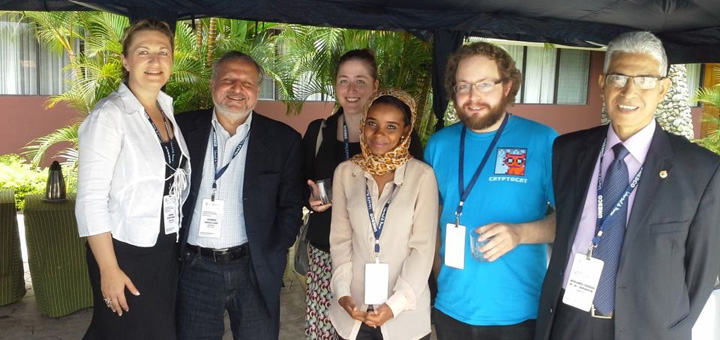 The Media Council of Kenya recently set up a press freedom monitoring portal to record incidents of violence against journalists. Going through the portal, I am amazed at the high number of incidences reported; from the two Nation Media Group journalists who were attacked by the General Service Unit officers in Kibera to The Star journalist who was found dead in his house in Mombasa. The Star journalist had received anonymous threats through text messages in connection with a story he worked on about the shipment and sale of fertilizer that had exceeded its expiry date.
The Media Council of Kenya recently set up a press freedom monitoring portal to record incidents of violence against journalists. Going through the portal, I am amazed at the high number of incidences reported; from the two Nation Media Group journalists who were attacked by the General Service Unit officers in Kibera to The Star journalist who was found dead in his house in Mombasa. The Star journalist had received anonymous threats through text messages in connection with a story he worked on about the shipment and sale of fertilizer that had exceeded its expiry date.
Such attacks on journalists can be very damaging to media freedom as it may lead to a culture of self censorship. This therefore begs the question, how can journalists to stay safe in this increasingly unfriendly environment and avoid situations where they may be compromised by fear of being attacked?
From May 2-4 journalists from around the world gathered in a hall in San Jose, Costa Rica, to discuss the issue of the safety of journalists. Among the over a hundred journalists, was an Internews in Kenya trained journalist.
“Never had I thought I would ever get to that part of the world, but who knew that a simple training on vasectomy and maternal health at the Internews offices in Nairobi could get me that far?” said KTN’s Saida Swaleh after attending the conference.
She attended the conference after receiving communication from the Internews office in Washington about being awarded a fully paid trip to attend the world press freedom celebrations.
“I was very happy. Being the only Kenyan and Internews alumni I was more than happy to represent the organization that I work for and more importantly, Internews,” said an excited Saida.
Driven by the deaths of around 600 journalists over the past decade, this year’s conference was on the theme: Safe to speak: securing freedom of expression in all media. As a journalism trainer with Internews in Kenya, I cannot underestimate the importance of freedom of the media as this is a key driving force to commitment to democracy, good governance and accountability. Equipping journalists with information on how to stay safe in their line of duty should therefore be a priority as this will go a long way in securing their safety and reduce instances of self censorship due to fear of being attacked.
Journalists continue to do an incredible job of informing the public and are often expected to speak without fear but this can only happen in an environment where they are not intimidated as a result of their stories and that their safety is guaranteed.
“I also attended training on physical security. Here we had a first aid crash course and basic things, which can do to protect our lives. A true eye-opener I must say,” says Saida.
Saida now knows very well what she is expected to do when under attack while covering a story, but how many other journalists have this vital information . Do our media houses have measures in place to ensure their journalists are equipped with this information on how to stay safe during attacks?
Because they help in ensuring transparency and accountability in public affairs, journalists will continuously be targets of violence and therefore equipping them with information on how to stay safe should be a priority of any media organization and this will ensure they are safe to speak.

